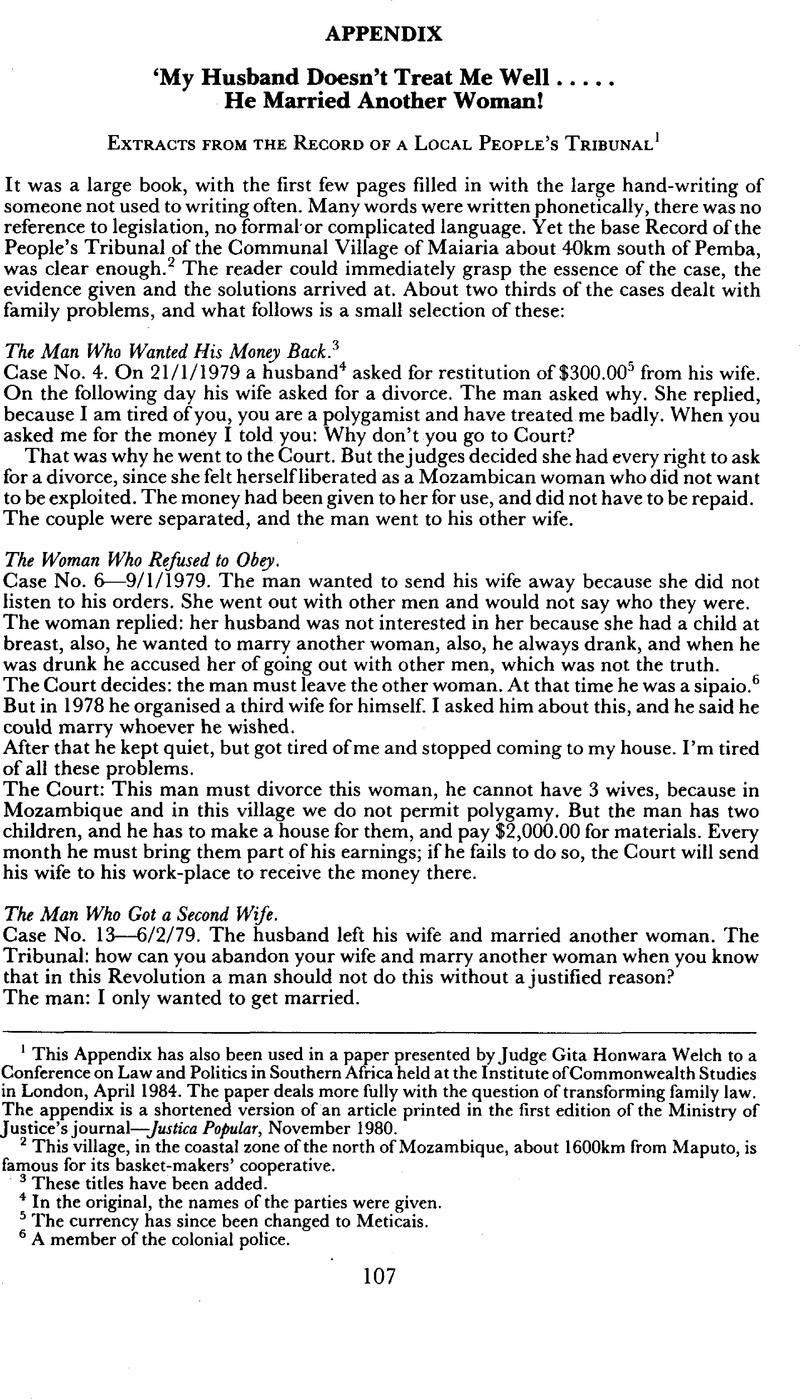No CrossRef data available.
Published online by Cambridge University Press: 28 July 2009

1 This Appendix has also been used in a paper presented by Honwara Welch, Judge Gita to a Conference on Law and Politics in Southern Africa held at the Institute of Commonwealth Studies in London, 04 1984Google Scholar. The paper deals more fully with the question of transforming family law. The appendix is a shortened version of an article printed in the first edition of the Ministry of Justice's journal—Justica Popular, 11 1980Google Scholar.
2 This village, in the coastal zone of the north of Mozambique, about 1600km from Maputo, is famous for its basket-makers' cooperative.
3 These titles have been added.
4 In the original, the names of the parties were given.
5 The currency has since been changed to Meticais.
6 A member of the colonial police.
7 There is no adequate translation for the word “responsavel”. It means the person who has responsibility for a certain function or in relation to a certain area, and in the context could refer to members of the village administration or members of the Women's Movement or Youth Movement.
8 At that time the word “comrade” was widely used in the courts as elsewhere as a normal form of designation. After criticism by the President that the term was being abused (‘will the comrade murderer please come forward’), its use was confined to strictly political contents only.
9 Because there is no one who can help us resolve this dilemma.
10 This is an example of how norms are established through oral “orientations”.